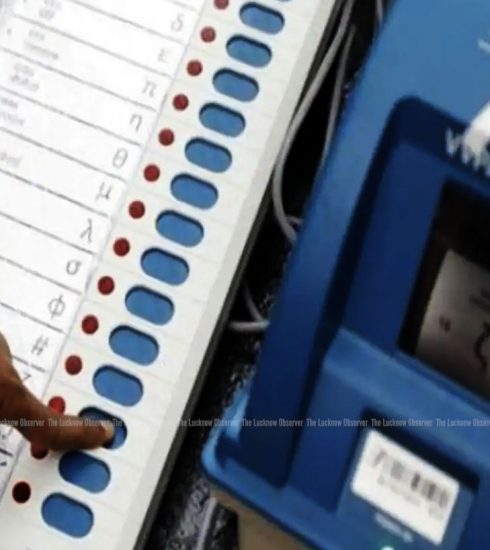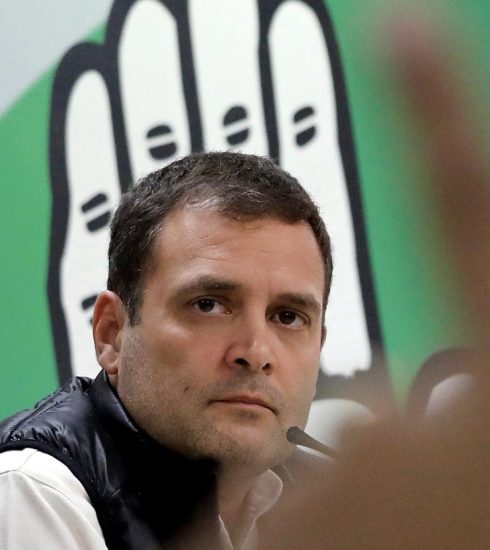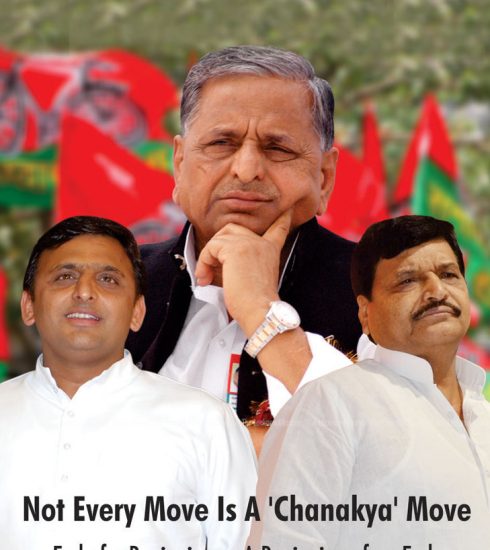Lest we forget Mustakeem of Muzaffarnagar

Muzaffarnagar Victims
Mustakeem 28, was at home in Fugana with his 26 year old wife and elderly, sick mother on the night of 8 September, 2013 when Muslim homes were attacked, ransacked, looted and burnt all over Muzaffarnagar resulting in a mass displacement of 70,000 men, women and children from various villages.
“I was at home when I heard the voice of Tham Singh, village chief. I went out and saw him standing with some men. He was requesting Muslims not to leave the village following a fearful atmosphere as it would bring a bad name to him. We didn’t know that he had already planned for big scale violence,” recalls Mustakeem.
“Only 15 minutes after promising peace, his goons charged upon us with tridents and swords from all sides, ambushing us and waiting for a cue from him to attack us. Tham Singh asked us not to leave not because he cared for us but because he wanted to make sure that a maximum amongst us was killed,” says Mustakeem.
“I was trapped outside the village. I could not return home no matter how hard I tried. So I fled,” he remembers.
He fled to the madrasa or local school at Jogia Khera where he waited anxiously for news about his wife and mother whom he was forced to leave behind in the village the night before. Next day, Mustakeem was one amongst thousands of riot victims.
“My wife had locked the house from inside but they were too many of them. They broke the door and got in. They checked the house to see if anybody else was there. My mother lay on a cot on the terrace. They sexually assaulted my wife at gun point. After a few hours the army came and that scared the attackers. But the damage to us was done,” is the plaintive cry of Mustakeem.
At the Jogia Khera madrasa he got to know what had happened in his house.
“Other people who escaped the village told me what happened to my wife. What face do I show to others?” he asks angrily.
For the next two days, Mustakeem frantically searched many villages hoping to find his wife and mother. The paramilitary had escorted riot victims out of villages into the safety of hundreds of refugee camps that had sprung up in the outskirts of Muzaffarnagar and the district of Shamli. But Mustakeem did not find his wife and mother anywhere. His search took him to the idgah camps of Kandhla, Jaula and Loi. It was at Loi that he was finally united with his loved ones.
“My wife’s sister and the children in my house had gone to visit relatives in a different village so fortunately nothing happened to them,” he sighs.
To deal with his sorrow Mustakeem is busy providing assistance to other riot victims at Jogia Khera. His own experience in the communal violence allows him to connect with other victims emotionally.
In the last week of last December, the state government ordered the camps at Loi and Neemkheri to be bulldozed. This thoughtless gesture has once again displaced about 450 families at the Loi camp who are still to find refuge elsewhere. Some have made it to other villages, some are languishing on roadsides while some families are camped near the now destroyed camp.
In early January, the idgah camps at Kandhla were also removed. Mustakeem tried to move heaven and earth to stop the authorities from dismantling the camps. He was brutally thrashed for trying to do that.
“Everyone asked me why I was meddling in the affairs of the police. Some local Muslim managers namely Yameen and Abdul Jabbar at Loi are helping the authorities to dole out compensation and in the plotting of new land to victims. They did nothing to stop the dismantling of the camp. I reported the two local managers to the police but nothing happened.
“Inki prashasan ke saath setting hai,” says Mustakeem who feels that the two of them are hand in glove with the administration.
Once they got fed up of Mustakeem and his meddling ways and beat him up. As far as compensation of Rs five lakhs is concerned, he has not received a dime and claims that the wide distribution of money is confined to paper only.
On being asked to be photographed, Mustakeem gets worried. Not that he doesn’t like to be photographed but he does not want his photograph to be published.
“Bhaiya, photo mat lena, woh humein phir dhoond ke maarenge,” he pleads saying that once his photograph is printed he will be found out and beaten up again. He covers his face and doesn’t ride beyond certain points in any village and walks cautiously even in Muslim localities after being thrashed badly.
The Jogia khera madrasa is the only safe place of shelter for riot victims today as all other camps around it have been destroyed. Since this is a permanent institution and not a camp, many families come here to seek shelter. About 1200 people and 400 families are staying in the concrete building of the madrasa at present. Mustakeem helps in taking care of those who are braving the winter chill without food or shelter.
“We are unable to accommodate everyone but we are doing as much as we can,” concludes Mustakeem who says that he knows Salim and Roju, two men in their early forties reported by a local newspaper of trying to instigate further riots.
“I know them very well. They will not hurt a fly. How can they kill other human beings when they are themselves victims of the recent violence,” argues Mustakeem who feels that Salim and Roju are innocent and is determined to defend them even if it means doing so alone.
Les Miserables of Muzaffarnagar…
People from different walks of life continue to speak against the communal violence that flared in Muzaffarnagar and which the state government was unable to prevent last September. Even worse is the condition of thousands of riot victims who are in refugee camps. Recently some victims visited Lucknow to share their ordeal with well wishers here.
Kallu, 28, a labourer told The Lucknow Observer that his father was murdered before his eyes by people he had grown up with in Kutba village. His house was later burnt and looted. He was forced to flee and got shelter at a refugee camp in Shahpur which government officials shut down after the refugees were paid compensation.
“The compensation of Rs five lakhs is not enough to buy land, build a house and to start life from scratch. I feel cheated. No arrests have been made despite naming the culprits in police reports,” said Kallu who wants criminals to be arrested and the government to ensure his safety, adding that his children are prevented from attending school. Without education his children have no future, he realises.
Thirty eight year old Shakir Ali is also a labourer. He looks much older than his age. His beard is grey, his countenance is bland and there is nothing but hopelessness in his eyes. Shakir lost his brother in the violence.
“Mobs attacked us around 8:45 am on 8 September, 2013. Our home was burnt down. My younger brother was killed in the violence that followed. The police came after three hours and only after we pelted stones at them to get them to move; higher police officials asked us to cooperate to identify culprits. We told the police the whereabouts of some of the culprits and they were arrested but later let off. Now the police accuses us of implicating the guilty on false charges,” Shakir said.
Mohammad Ilyas, 36, is a tailor who lost his mother in the violence. His tailoring shop did brisk business but now he has lost everything.
“Only remnants of my house remain. People have looted the doors, windows and whatever they could find in the house. We have named 111 people in police reports but not a single arrest is made. There is no support from the government and it’s humiliating as well as infuriating to see the culprits roam freely and defiantly in front of us. I don’t want to go back to my village at any cost because nothing is left there for me”.
Imran, 36, another labourer said, “In my wildest imagination I had never thought that the people with whom I had shared bread would do this to us. Friends have suddenly turned to foe and a wave of communalism has swept over everyone”. Imran lost two people from his family. Like so many others, Imran is afraid of a backlash by those he has reported to the police.
“They have threatened to shoot us at sight. I want the safety of my remaining family,” replied Imran when asked what his immediate need is.
What infuriates human rights activists is an affidavit that government officials have forced all those rendered homeless but who have received some monetary compensation to sign to say that they will not return to their village. Monetary compensation is not the answer say public intellectuals, activists and NGOs who met in Lucknow recently nearly four months after violence has torn apart homes, villages and the shared social fabric of urban and rural Muzaffarnagar and at the call of the Joint Citizens Initiative. Farah Naqvi, activist and member of the National Advisory Council underscored the need for integration which is vital to build trust among the future generations. Farah makes a passionate appeal for justice, and a healing touch. Other speakers said that the government refuses to recognize the loss of property and the physical and mental uprootedness of thousands of human beings who have overnight become homeless in their home state.









